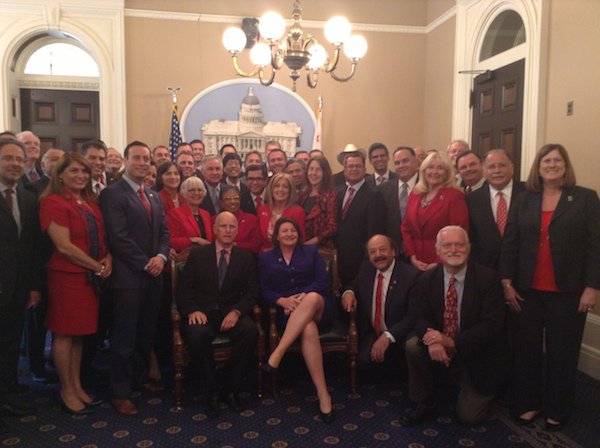Far-Reaching California Proposition 31 State Budget Plans


Far-reaching California Proposition 31 seeks to change in a dramatic manner how the State of California and local governments handle budget matters and fund spending. It would provide more oversight and restrict Sacramento from spending more than $25 million on certain bills without corresponding cuts in spending or increases in taxes. Prop 31 allows local governments to pool tax receipts into regional super-governments. It would also make numerous changes and additions to the state constitution.
Californians often face complicated propositions requiring serious study to understand. Prop 31 is one of them. It is currently leading in the polls. However many voters are still undecided. You can visit the Yes on 31 and the No on 31 websites for more information.
Opponents of the measure include the California Democratic Party and public employee unions, both of which have their hands full trying to defeat Proposition 32 (limiting political contributions of unions and corporations) and passing Proposition 30 (Governor Jerry Brown’s tax increase) and have thus far only come up with $138,600 to stop Prop 31.
Proposition 31:
- Establishes two-year state budget cycle.
- Prohibits Legislature from creating expenditures of more than $25 million unless offsetting revenues or spending cuts are identified.
- Permits Governor to cut budget unilaterally during declared fiscal emergencies if Legislature fails to act.
- Requires performance reviews of all state programs.
- Requires performance goals in state and local budgets.
- Requires publication of bills at least three days prior to legislative vote.
- Allows local governments to alter how laws governing state-funded programs apply to them, unless Legislature or state agency vetoes change within 60 days.
The official pro and con arguments summarize the positions:
Pro: Yes on 31 will stop politicians from keeping Californians in the dark about how their government is functioning. It will prevent the state from passing budgets behind closed doors, stop politicians from creating programs with money the state doesn’t have, and require governments to report results before spending more money.
Con: Proposition 31 is a badly flawed initiative that locks expensive and conflicting provisions into the Constitution, causing lawsuits, confusion, and cost. Prop 31 threatens public health, the environment, prevents future increases in funding for schools, and blocks tax cuts.
The official summary of the Prop 31 effects says it will reduce state revenue by $200 million while raising local government by the same amount, possibly lower local funding by the state, lower state spending and/or raise revenues, cost tens of millions to implement, and that the effects of the new requirements "cannot be predicted."
All Californians should pay attention to Prop 31. If it becomes law, the changes will be far-reaching and somewhat unknown. Voters may favor or oppose Prop 31 but they need know what it will do.



